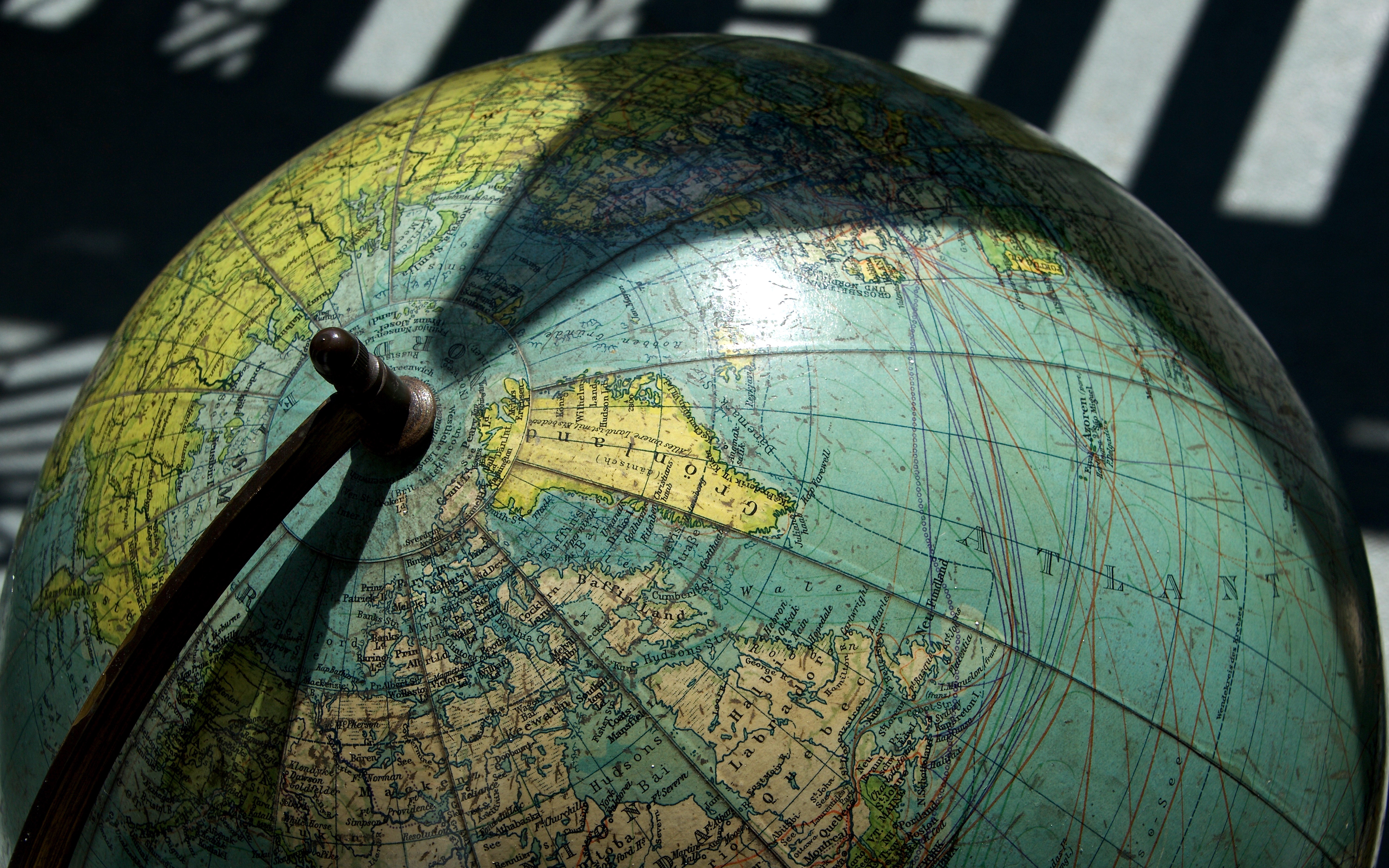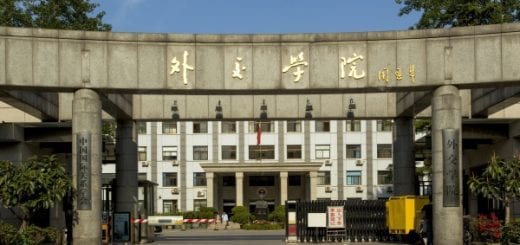Symposium: Third World Approaches to International Law (TWAIL) & Economic Sanctions
In collaboration with the LPE Project, the Yale Journal of International Law (YJIL) is excited to publish the 2023 Symposium on Third World Approaches to International Law (TWAIL) and Economic Sanctions. This critical discussion about sanctions could not be more pressing: since the start of the Russo-Ukrainian War in February 2022, the United States and its allies have deployed economic sanctions as their primary responses to Russia’s serious violations of international law. Proponents of sanctions hail the measures as a “non-violent” alternative to military action that can serve as an effective tool for enforcing international law. But the idea that sanctions provide a simple, peaceful tool for law enforcement papers over their often devastating political, economic, and social impacts.
As the contributors to this Symposium make clear, sanctions and their impacts are as contested as ever — sanctions are deeply implicated in the global political economy and imperialist power relations. Sanctions are not reserved as a tool for exceptional circumstances. Instead, these often coercive measures are routinely used by powerful countries to dominate and impose their priorities on other states. Since sanctions are primarily available only to the most powerful states, for use against less powerful, post-colonial states, this raises the question of whether sanctions actually function as a tool for international law enforcement or rather to maintain global power hierarchies and core/periphery relations that perpetuate capitalist imperialism. The pieces collected in this Symposium demonstrate that sanctions—especially the unilateral sanctions levied by hegemonic countries, like the United States—can operate as a means of economic warfare, contributing to, as opposed to constraining, violence and humanitarian crises.
Importantly, the asymmetries inherent to sanctions and their operation mean that the violent impacts of sanctions disproportionately harm impoverished and marginalized communities in the Third World. Some may be confused, or concerned, about our choice to use the term “Third World.” There is no doubt that this term has been used in the past to demean and dehumanize countries and peoples ravaged by colonialism and imperialism. But today, rather than using Third World to imagine the majority of the global population as a homogenized and subordinated “other,” we use the term critically to invoke the thinking and work of TWAIL scholars who have built an intellectual movement focused on challenging international law’s assumed neutrality and universality by revealing and interrogating the international legal system’s historical and ongoing relationship with colonialism and imperialism. The contributors to this Symposium focus on TWAIL analytical tools and intellectual commitments to confront and unpack the ways that sanctions are used to perpetuate and solidify imperial relations.
This Symposium provides a clarion call for international law scholars, practitioners, and members of civil society (particularly from countries of the Global North that use their power to impose sanctions on economically weaker states) to interrogate the dominant discourse presenting sanctions as nonviolent tools for international law enforcement. The authors contributing to this Symposium draw on a range of theoretical and historical frameworks and examples of various sanctions regimes to invite readers to think critically about the impacts of sanctions on target countries, war, and efforts to strengthen international law and justice.
The Symposium begins with an Introduction by Aslı Bâli and Ntina Tzouvala, who highlight the ways that this Symposium’s invitation to explore the intersection of Law and Political Economy (LPE) and TWAIL provide an opportunity to interrogate the relationships between law, economic sanctions, empire, capitalism, racism, and violence. It is by examining these relationships that it becomes clear both how sanctions contribute to human suffering and inequality as well as why economic coercion must and can be contested.
In Unilateral Coercive Measures: Effects and Legality Issues, Alena Douhan (UN Special Rapporteur on the negative effect of unilateral coercive measures) argues that the mushrooming of unilateral sanctions, coupled with widespread over-compliance and ineffective humanitarian exemptions, has led to serious human rights violations in targeted countries, thus violating international law.
In The Opacity of Economic Coercion, Jessica Whyte (Professor, University of New South Wales) starts from the observation that the vast yet muddy scope of contemporary sanctions regimes makes them particularly harmful for targeted populations. She then traces the evolution of the concept of economic coercion in the post-colonial history of the global order and notes how the growth of neoliberalism and individualized human rights have worked to obscure the coerciveness of economic sanctions.
In Sanctions New Colonizers, Maryam Jamshidi (Associate Professor, University of Colorado Law School) asserts that the United States has been the primary practitioner of financial imperialism, relying on a host of private plaintiffs that are willing and able to enforce civil judgments against those deemed to be state sponsors of terrorism. These “new colonizers” rely on the Terrorism Risk Insurance Act and the Iran Threat Reduction and Syria Human Rights Act in ways that reinforce financial imperialism, punishing sanctioned actors and permitting the permanent confiscation of sanctioned assets.
In Situating Unilateral Coercive Measures Within a Broader Understanding of Systemic Violence, Michael Fakhri (United Nations Special Rapporteur on the Right to Food) considers unilateral coercive measures as a form of violence arising from a spectrum of systemic violence and structural inequality. Understanding how unilateral coercive measures produce violence, by causing bodily harm, enables an intersectional analysis that points to how coercive measures are interconnected and overlap with other forms of violence in food systems and economies, during both times of war and peace.
In Successful Failures: Economic Sanctions, Humanitarianism, and the Undoing of Post-Colonial Sovereignty, Ntina Tzouvala (Associate Professor, Australian National University) highlights the ways in which economic sanctions undermine the sovereignty of targeted states, focusing on the case of Afghanistan. Although sanctions regimes have failed to achieve their purported humanitarian aims, she says, they have succeeded in undoing the independence and authority of post-colonial governments.
In Economic Sanctions and Humanitarian Principles: Lessons from IHL, Professor Nathanael Tilahun (Associate Professor, Essex Law School) & Professor Obiora Okafor (Professor & York Research Chair in International and Transnational Legal Studies, Osgoode Hall Law School & UN Independent Expert on human rights and international solidarity) compare the laws governing the use of force and those governing the use of sanctions, finding that international humanitarian law governing warfare has far outpaced the guardrails placed on sanctions.
In The Fog of Peace: Who Profits from Economic Sanctions, Vasuki Nesiah (Professor of Practice, New York University Gallatin School of Individual Study) examines the modern framing of economic sanctions as contrasted to the realm of war. Nesiah highlights how sustaining the myth of these dichotomies exacerbates the devastating impact of sanctions regimes and works to the advantage of powerful actors such as colonial powers. She also challenges us to consider the symbiotic relationship between war and economic sanctions.
Eva Nanopoulos (Professor, Queen Mary University of London) contributes a piece entitled What is in a Name? Colonialism, Imperialism, Capitalism, and the Antinomies of ‘Peaceful’ Economic Sanctions. Professor Nanopoulos argues that it is contradictory to describe sanctions as peaceful measures, directly connecting the history of economic coercion to colonialism and capitalism.
Joy Gordon (Professor, Loyola University Chicago) contributes The Brutal Impact of Sanctions on the Global South, exploring the real-world impacts of sanctions on the Global South. Professor Gordon argues that even unilateral sanctions can have devastating impacts across the Global South and shows how risk calculations by private companies can amplify the harms of sanctions regimes.
Tendayi Achiume (Professor, University of California, Los Angeles School of Law) uses her Discussant Comments to consider key interventions made in a subset of the posts in this Symposium and then reflects on TWAIL, LPE, and the encounter between the two—inviting us to consider what can be gained from a TWAIL-LPE approach to critically interrogating international law and sanctions.
Aslı Bâli (Professor, Yale Law School) argues in her piece, Weapons Against the Weak, that “[s]anctions are best understood as an an instrument in the postcolonial arsenal of economic statecraft.” Bâli highlights how the imperial character of sanctions has been brought into sharper focus by the return to multipolarity; challenges to the power asymmetry that has benefitted the United States, and its allies, necessarily limit the scope and effectiveness of sanctions, which have been relied on by these powerful states as a tool to impose their preferences and punitive measures on weaker countries. Importantly, Bâli invites us to consider how the shifting distribution of global power presents contradictions, whereby powerful states defend some forms of economic coercion as “good” while seeking to proscribe other forms, that may create space to resist sanctions as part of advancing an anti-imperial agenda.
Contributions to the Symposium:
Aslı Ü. Bâli & Ntina Tzouvala
Unilateral Coercive Measures: Effects and Legality Issues
Alena Douhan
The Opacity of Economic Coercion
Jessica Whyte
Maryam Jamshidi
Situating Unilateral Coercive Measures Within a Broader Understanding of Systemic Violence
Michael Fakhri
Ntina Tzouvala
Economic Sanctions and Humanitarian Principles: Lessons from IHL
Nathanael Tilahun & Obiora Okafor
The Fog of Peace: Who Profits from Economic Sanctions?
Vasuki Nesiah
The Antinomies of “Peaceful” Economic Sanctions
Eva Nanopoulos
The Brutal Impact of Sanctions on the Global South
Joy Gordon
E. Tendayi Achiume
Aslı Ü. Bâli



